
First Round (12h00 - 13h15)
“Si se puede!”:
A Whole School Model for Transforming School L.I.F.E. for Emergent Bilinguals
(online participation)
This presentation will detail a unique model designed for middle and high schools seeking to address the needs of multilingual students by integrating leadership-initiated, school-wide efforts to improve multilingual students’ school experiences with teacher-led efforts to improve their academic experiences. The model recognizes the significant impact professional development programs can have when they integrate professional development for school leaders and design programs that welcome multilingual students and families into their schools. Both strengths and areas for improvement of this model will be discussed. Attendees will be invited to discuss how they might adapt this model for their schools and districts.

Erica V. Johnston, Project Coordinator & TESOL Instructor, has experience teaching in a variety of language learning contexts, including early elementary, bilingual/ESL, higher education and community-based adult ESL settings. Erica is currently an instructor in the College of Education at Temple University where she also received her Master’s degree in TESOL.
Understanding and Using Comics as a Teaching-Pedagogical Resource
This workshop aims to discuss the characterization and relevance of comics in literature and in teaching English as a foreign language. At first, we analyze strategies used in the overlap and intertwining of various semiotic elements to construct meaning frame by frame, based on the concepts developed by Scott MacCloud in his book Understanding Comics (2005). Then, we intend to propose activities using comic books and comic books as didactic-pedagogical material that provides a high level of engagement in the foreign language learning process.

Priscilla Thuany Cruz Fernandes da Costa is a student of English Letters at the Federal University of Paraíba and currently contributes to the extension project Tradução e Empoderamento da Mulher and the undergraduate research project GRIFES (Grupo de Estudos Sobre Crítica Feminista Estadunidense). She has been a part of the EFOPLI Project since 2015 and works as a teacher in the context of the English without Borders Program.

Thayse Silva da Rocha Dias is an English major at the Federal University of Paraíba, a PIBIC scholarship holder in the undergraduate research project GRIFES (Grupo de Estudos Sobre Crítica Feminista Estadunidense) and a volunteer participant in the extension project Tradução e Empoderamento da Mulher.
Adapting CBI to our classes: practical ideas
Content-Based Instruction (CBI) refers to classes in which the content is taught in the language students are still learning. In our workshop, we will have the opportunity to look at some principles behind CBI, its challenges and possibilities. The session will focus on practical hands-on activities, active learning methodology and collaborative work. Let's have fun, share ideas and learn together!
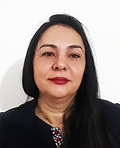
Anne Franciare Araújo de Queiroz has been an English teacher from Paraíba State Schools since 2012 and João Pessoa Municipal Schools since 2015. She is graduated in English and has a Specialist degree in the Teaching and Learning of the English Language. Recently she has been involved in studies conducted at the Häme University of Applied Sciences (HAMK) – School of Professional Teacher Education in Hämeenlinna, Finland, through the Gira Mundo Finlândia program, sponsored by the Paraíba State Government. For her, both the actions developed first by EFOPLI and later by Gira Mundo Finlândia Program are turning points in her pedagogical skills. She is especially proud of being part of the history of the EFOPLI Program, of which she has been a member since 2014. Anne also believes that learning English is not a privilege but a right and part of our job consists of letting people know that.

Daniel Sousa Morais holds a Licensure degree in English from the Federal University of Paraíba in Brazil, as well as a Master's degree in Linguistics from the same institution. For the past 6 years, he has worked in different EFL contexts, such as language schools, primary and secondary schools, vocational courses, and preparation courses for international certificates. Recently, he has completed an online training course about Content Based Instruction delivered by World Leaning from the American (AE) E-Teacher Program, which is a program of the U.S. Department of State and FHI 360. He is fond of researching the areas of teacher education, language policy, and course design under the perspective of Applied Linguistics.
A closer look at the bilingual scenario(s) in Brazil.
What does the future hold?
The term 'bilingual' is everywhere and many schools are now offering some sort of bilingual solution. What solutions are these and how do they differ from one another? Come and join us to learn about the different offers and what challenges they face on a daily basis.

Sergio Lins works as an academic and bilingual solutions consultant for Macmillan Education Brazil. He has been involved in ELT for over 20 years, working as a teacher, trainer, and consultant.
Second Round (14h30 - 15h45)
Navigating linguistic and culturally diverse classrooms:
a multimodal journey
(online panel)
In an increasingly more globalized and multicultural world, there has been growing interest in learning more about what happens in linguistic and culturally diverse classrooms. Multiple languages, literacies, attitudes and expectations towards learning, sociocultural backgrounds, these are just a few aspects that English language teachers should consider when navigating these waters. In this presentation, we would like to share recent scholarship in the field of language and literacy deriving from transnational perspectives that have examined the affordances of multimodal resources (e.g., multimedia resources, digital storytelling, digital storybooks, (role)play, games, and arts) as powerful educational tools for teachers and as a means to foster students’ engagement in multilingual and multicultural learning settings.
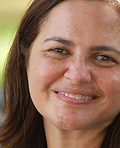
Angélica Araújo de Melo Maia is a professor at the Department of Modern Foreign Languages at Universidade Federal da Paraíba, Brazil and is currently a Post-Doctoral Fellow at the Language and Literacy Education Department at the University of British Columbia, Canada. She was one of the coordinators of the Brazilian Government Program for Initial Teacher Education (Pibid) in her Department and she is a member of the Research group Language, Teaching and Inclusive Education (ALDEI/ CNPq/UFPB). Areas of interest: teacher education; critical literacy; multiliteracies; supervised practicum; teaching English for students with disabilities; English language teaching.
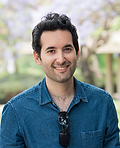
Amir Michalovich is a PhD student in Language and Literacy Education at the University of British Columbia. His area of specialization is multimodality in education, particularly the ways in which multimodal meaning-making can facilitate immigrant and refugee background students’ engagement in school learning. Amir has managed a national-scale research project in Israel mandated to introduce a new multilingual education policy, taught English as a Foreign Language, and has worked as a filmmaker and mentor for community-based filmmaking groups. He holds a BFA in Film and TV Studies and an MA in Multilingual Education, both from Tel Aviv University.
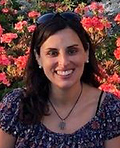
Denise Blanch is an English Language teacher/researcher currently studying and working at the University of British Columbia. She has been teaching English for over fifteen years and has worked with primary, secondary and adult learners in EFL and ESL contexts. She has been in charge of mentoring teachers as English Department Head in two schools and also as a Principal in an international bilingual school in Santiago, Chile. She holds a BA in English Literature and Linguistics from Universidad Catolica de Chile, a TESOL certificate from Greystone College (Vancouver, Canada) and is currently undergoing a TESL MA at The University of British Columbia. Her thesis is part of the project: “Language and Literacy Learning Among Youth Refugees in Canadian Secondary School Classrooms” and her research interests are affective pedagogy, emotions in education, multimodality, multiliteracies, multilingualism and intercultural education.
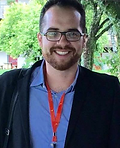
Jonathan Ferreira is a graduate of English Literature and Linguistics from Federal University of Paraiba, a Cambridge CELTA-certified teacher, and currently an M.A. student in Literacy Education at the University of British Columbia. He is presently carrying out research on the affordances of culturally relevant pedagogies and multiliteracies to support language and literacy education of learners from refugee backgrounds in Canadian elementary classrooms. His research interests include critical literacy, multimodality, multiliteracies, and play-based approaches to English language teaching/learning.
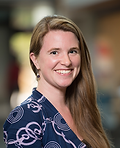
Monica Shank Lauwo is a PhD student in Language and Literacy Education at the University of British Columbia, and the Founding Director of Cheche Community Library, a multilingual learning centre in Northern Tanzania. Her research interests include translanguaging, multimodality, critical literacy, power, identity, and language attitudes, particularly in East Africa.
Starting with community:
Building caring and safe classrooms and schools
As educator Ralph Peterson said, "Community is more important to learning than any method or technique." This session will look at the fundamental importance of developing classroom and institutional communities in which our students feel trust, respect, a sense of belonging, and a shared understanding of the values and norms for learning. Together, we will discuss and take part in different classroom practices that build relational capacity, the basic foundation for creating educational spaces in which students can learn.
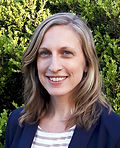
Chloe Bellows is an English Language Fellow in João Pessoa, Brazil, conducting professional development with municipal teachers and with EFOPLI at the Federal University of Paraíba. She has been teaching English for over twelve years, and has worked with primary, secondary, and adult learners in diverse settings that include non-profit community centers, public schools, and international bilingual schools, in the US and abroad. She holds a BA in Comparative Literature from Brown University and an MA in TESOL/Applied Linguistics from Teachers College, Columbia University. Chloe is also a translator and trained interpreter in English/Spanish.
Teacher Education in the Next Decade
This presentation aims at raising teachers’ awareness of the recent changes in the ELT world, as well as what is necessary for teachers to keep an active role in this universe in the years to come. It tells a brief story of the development of ELT in Brazil, draws attention to what teacher development meant and how it has changed, introduces the concepts of CLIL and EMI, discusses their coexistence with communicative approaches, and proposes a path to ‘change’ in ELT nowadays, which is based in small-scale research done along the year in different contexts with teachers of English, discussing briefly the roles of teachers, institutes and organizations in this process.

For the past thirty years, André Alipio has played the role of teacher, academic coordinator, teacher trainer, head of training, and/or DoS at different institutes, like Cellep, Cultura Inglesa, International House São Paulo, and Global Teaching Practice. He graduated in Communication from PUC/SP, holds the RSA COTE, Cambridge DELTA, and a TESOL & Applied Linguistics Masters, from the University of Leicester, UK. He has developed and taught language courses for teachers English as part of his role as teacher educator at GTP. More recently, he has organized the iTTi TEFL Certificate course to be delivered in São Paulo, by UP Language. In association with different centres, including UP Language Consultants, he has tutored CELTA, CELTA Online and DELTA courses in Brazil and abroad. Course books and materials development have also been part of the ELT activities André has engaged in recently, along with consulting for language institutes in São Paulo and other cities.
Working With Videos In The English Language Class:
From The EwB To Public Schools
Cope and Kalantzis (2009) argue that the world is constantly changing, consequently, meaning making processes are also being transformed; they are increasingly multimodal, that is, they involve two or more modes that interact complexly (ZACCHI, 2016). Multimodal texts, therefore, are part of students’ social practices, permeating their identities. In this sense, it is important that schools recognize the importance of working with videos, for instance, as official documents for education, such as BNCC (2018) defend, stimulating critical thinking. That being said, this workshop aims at raising discussions regarding the work with videos in the English language class, through the analysis and preparation of practical activities. Some examples from the English without Borders (EwB) classes will be addressed, considering multimodality, multiliteracies (COPE, KALANTZIS, 2000), the communicative approach (LARSEN-FREEMAN, 2003), and the postmethod condition (KUMARAVADIVELU, 2006), which defends teachers’ autonomy and highlights the importance of taking the teaching context into consideration when planning classes.

Nayara Stefanie Mandarino Silva is an undergraduate student of Letras at the Federal University of Sergipe. She has worked as an English teacher at the Languages without Borders Program since 2018. She also works as an undergraduate research fellow at the same university.
Third Round (16h00 - 17h15)
Do we consider everyone when we teach English?
Quem cabe no seu todos?
The aim of the workshop is to problematize and reflect upon some English language activities we work with in the classroom through which we tend to reinforce and naturalize some common everyday views on racism and gender issues. Why do we do that? We usually say that we include and integrate all the groups. Do we really? Why do we sometimes forget about them? Theories will help us expand our understanding and boost other possibilities of working with the activities. Briefly, we will discuss some concepts such as social justice (WESTHEIMER, 2015; DOBSON, 2005; 2006), decoloniality (MIGNOLO, 2016; 2017), recreational racism (MOREIRA, 2019), difference, diversity and queer theory (MISKOLCI, 2018).
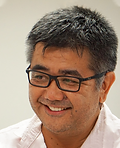
Sérgio Ifa is a professor at the Federal University of Alagoas (UFAL) for undergraduate and graduate levels. He holds a PhD in Applied Linguistics (PUC-SP) and is the research leader of Letramentos, Educação e Transculturalidade (Literacies, Education and Transculturality research group). He is the coordinator of Casas de Cultura no Campus Extension Project as well as the Languages without Borders Program Coordinator at UFAL.
Active Teaching and Learning Methodologies:
Innovations that make a big difference!
Active methodologies are really important when the teacher is really committed with the teaching-learning process and when he or she is aware that the students have to be at the centre of this process. English language teaching has been transformed in the last decades. Since the implementation of the National Curriculum Parameters (NCP) in 1998, English teaching is gaining new directions. The Foreign Language NCPs (NCP-EL) began to come up with a new work, possible applicability of new theories and methodologies in the classes. English teachers are all the time facing new methodologies; and dealing with Active Methodologies is learning that the students are not passive, they are more than information receivers and they can become the protagonist of their own learning. Thinking of this perspective, we aim to share in this workshop activities that involve some active methodologies that we learned during the time we spent in Finland in Gira Mundo, a program from the Government of Paraíba State that provides a teaching training at two different universities in Finland, Tampere University of Applied Sciences (TAMK) and Häme University of Applied Sciences (HAMK).

Anderlane Fernandes de Lima has a degree in Modern Languages, UFPB; specialization in Linguistics Applied to Portuguese Teaching, FIP; a specialization in English Language Teaching from IESP, and is a master's student in Literature and Interculturality Postgraduate Program, UEPB. She has been a teacher since 2006. In 2016 she participated in the Gira Mundo Finland Program and in 2018 she participated in the PDPI. She is currently an English teacher at Paraíba State and at the Municipality of João Pessoa and a tutor at Paraíbatec - Teacher Training
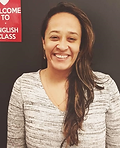
Eveline Alvarez dos Santos has a degree in Modern Languages, UFPB, a Specialization in English Language Teaching (UECE), and a Master Degree in Literature and Interculturality (UEPB). She has been an English Teacher since 1999. She studied one year (2006) at Vrije Universiteit Amsterdam (Holand) during her participation in PIANI Project (UFPB). She participated in the Gira Mundo Filândia program, 21st Century Entrepreneurship in Education at Tampere University of Applied Sciences (September-October 2018), and EFOPLI program in 2018/2019. She is currently an English teacher at Paraíba State (At Centro Estadual de Línguas do Estado), a Temporary Professor at The State University of Paraíba (UEPB) and a tutor at Paraíbatec - English - e-Tec Idiomas.
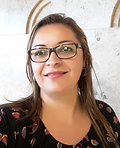
Janaina Lúcio Ribeiro de Lima has a degree in Modern Languages, UFPB, she has been an English Language teacher at Centro Estadual de Línguas da Paraíba since 2012. She participated in the Gira Mundo Filândia program, March-May 2018, and Efopli program in 2019. She is a Specialist in Teaching and Learning English Language. She is also a lawyer and she is attending a post-graduation course in Pension Law.
The Grammar of Words:
What do teachers/students need to know about this?
In this workshop the presenter will outline the background of "The Grammar of Words" features and participants will take part in a few activities which promote an atmosphere of work and cooperation in their english classes, thus helping their students develop a positive attitude towards learning.
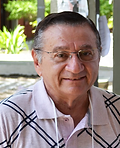
José Ribamar de Castro holds the COTE and a Masters Degree in Applied Linguistics from PUC/SP. He is a retired professor at the Federal University of Paraíba. He taught English Phonetics and Phonology I and II.
Teaching English through a Transcultural Perspective
Teaching a foreign language cannot be understood as a simple task in which a book is followed or a method is applied. Teachers need to be aware of their role in our society, since we are not just worried about the linguistics aspects of the language. Taking as a starting point the ideas proposed by Kumaravadivelu (2006, 2012), defending that the teacher should be able to theorize from his/her practices and practice based on the acquired theory, as well as the concepts of transculturality brought by authors such as Benessaieh (2010) and reflective practice in English teacher education, discussed by Schön (1983), this paper aims to discuss ways in which we can reconcile English language teaching, cultural and identity issues, reflection of teaching practices and critical literacy, based on the analysis of some teaching materials.
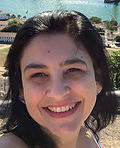
Elaine Maria Santos is an English professor at the Federal University of Sergipe, in Brazil. She completed her undergraduate degree in Portuguese-English and holds a Masters in Languages and a PhD in Education. She was a Fulbright Visiting Scholar in 2018 at New York University. She is the coordinator of the English without Borders Program at UFS. Her research interests are in applied linguistics, teacher education and history of education, focusing on Languages without Borders, English teaching, culture and identity.
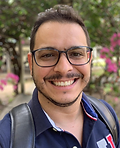
Rodrigo Belfort Gomes is an English teacher at the Federal University of Sergipe, in Brazil. He completed his undergraduate degree in English and holds a Masters in Languages and a PhD in Education. He is the Pedagogical coordinator of the English without Borders Program at UFS and his research interests are in applied linguistics, teacher education and history of education, focusing on Languages without Borders and English textbooks.